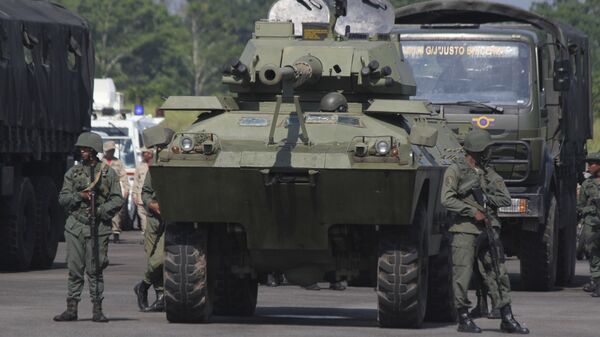62% of the population does not approve of President Ivan Duque's actions, with some sectors of the population calling for the current national strike and demanding his resignation.
According to Colombian economist Manuel Martinez, Doctor of Economics and Researcher at the Centre for Economic Situation Studies (CECON) of the State University of Campinas, the current outbreak of violence is based on domestic and international problems, as well as on past and current decisions that have worsened them.
“Since the 1990s, Colombia has undergone a very deep process of trade liberalisation, economic reforms and increased labour flexibility, which became even deeper in the 2000s,” Martinez told Sputnik.
According to Martinez, this fact distinguished Colombia from its Latin American neighbours, such as Argentina, Brazil or Uruguay, which during the first decade of the century carried out reforms in the opposite direction. In Colombia, on the other hand, these neoliberal reforms had the support of the International Monetary Fund, the World Bank and later the Organisation for Economic Cooperation and Development (OECD).
These decisions have led to the current scenario, in which the country's macroeconomic data show quarterly growth rates above the regional average (3.3 percent), but do not lead to an improvement in the quality of life of the population.
“Today, Colombia is a country that, despite its relatively high growth rate relative to Latin America, is fully connected to capital absorption, which retains its profitability at the expense of fictitious capital,” he added.
According to the economist, this capital is also retreating to safer markets due to the risk of a possible new global crisis.
Added to all this is the problem of unemployment, which exceeds 10% of the population and is a symptom of an even bigger problem: 44% of workers earn less than a month's minimum wage, according to data circulated by the Labour Minister Alicia Arango.
“Today, workers continue to consume, relying on credit debt, which is becoming increasingly expensive and causing more instability. The national Government is adding to this labour reform, offering hourly employment, a reduction in the minimum wage for young people aged between 18 and 24, along with other reforms such as the tax system,” Martinez concluded.
The national strike on 21 November opened the door to a series of violent demonstrations that swept the country in response to Ivan Duque's policies and pension reforms.



